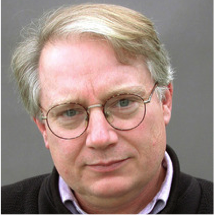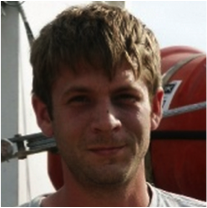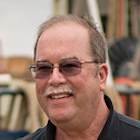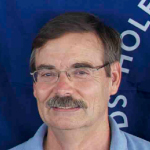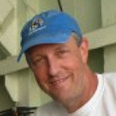 |
|
| SEARCH | SPURS | ||||||||||||||||||||
|
The Salinity Processes in the Upper Ocean Regional Study (SPURS) represents the collaborative efforts between a diverse group of scientists spanning national and international borders, from multiple organizations. These include, but are not limited to, physical oceanography experts and climate scientists from NASA, researchers from the Woods Hole Oceanographic Institution, and research professors from The University of North Carolina, Wilmington, to name a few. Here we present two webinar series on the SPURS project - Ocean Thinking: Inside and Outside the Box and Seeking Salt: Measuring a Key Ingredient of Climate.
Ocean Thinking: Inside and Outside the Box September 17, September 24, and October 1, 2013
SPURS seeks to improve our understanding of the ocean - especially its role in the global water cycle. Join three SPURS scientists as they describe several ways of looking at the ocean in and outside of the SPURS "box" - by examining the motion of water due to density, the dynamics occurring at the skin of the ocean's surface down to depths of hundreds of meters, and attempting to determine the salt "budget" as a result of ocean processes.
Julius Busecke is a Graduate Research Assistant at Lamont-Doherty Earth Observatory, Columbia University. He received his B.Sc. from the University of Kiel, Germany in 2010.
Dr. Stephen Riser is a Professor in the School of Oceanography at the University of Washington. His primary interests are in the ocean's role in climate, and in deducing the general circulation of the ocean and ocean/atmosphere/ice interactions through direct observations of the ocean circulation. He is also increasingly thinking about the interactions between physical aspects of the ocean circulation and biogeochemical properties of the ocean.
Dr. Tom Farrar is an Associate Scientist at Woods Hole Oceanographic Institution. His research interests include air-sea interaction and exchange; dynamics and thermodynamics of the upper ocean; tropical dynamics and equatorial waves; oceanic internal waves and eddies; satellite oceanography; and ocean observing and instrumentation. These interests are pursued from an observational perspective using in situ observations, satellite observations, and, in some cases, laboratory and numerical models to test hypotheses and test or formulate simplified physical models that aid understanding.
Seeking Salt: Measuring a Key Ingredient of Climate February 26, March 5, and March 12, 2013
Everyone knows that the ocean is salty, but did you know that salt is essential to the recipe for our entire climate and life on Earth?
From Sailing Ships to Satellites: Studying Salinity Through A Sensor Web Presented by Dr. Eric Lindstrom - February 26, 2013 Dr. Eric Lindstrom is a Program Scientist in the Science Mission Directorate at NASA Headquarters in Washington D.C. He has degrees in Earth and Planetary Sciences from Massachusetts Institute of Technology (1977) and Physical Oceanography from the University of Washington (1983). His scientific interests include circulation of the ocean and air-sea exchange processes. Read more about Eric here.
Salinity's Connection to Climate Change and an Accelerated Water Cycle Presented by Dr. Raymond Schmitt - March 5, 2013 SPURS Chief Scientist Dr. Raymond Schmitt is a Senior Scientist at Woods Hole Oceanographic Institution. Dr. Schmitt earned his Ph.D. in physical oceanography from the University of Rhode Island and his B.S. in physics from Carnegie Mellon University. His research interests include oceanic mixing processes such as "salt fingers" and the oceanic freshwater cycle. He has been a J.S. Guggenheim fellow and is a Fellow of the American Geophysical Union. Read more about Ray here.
Follow that Salt! SPURS Results and the Future of Salinity Exploration Presented by Dr. Fred Bingham - March 12, 2013 Dr. Fred Bingham is a Professor in the Department of Physics and Physical Oceanography at the University of North Carolina at Wilmington. His research interests include global distributions of sea surface salinity and large scale regional physical oceanography - the Kuroshio, the western North and Equatorial Pacific, and Onslow Bay, North Carolina. |
|
|||||||


